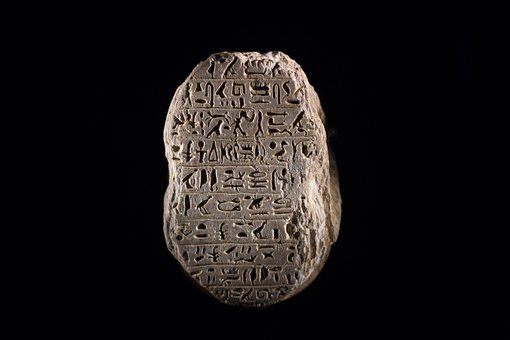The history of interaction of natural and humanitarian cultures
The initial stage of the accumulation and systematization of the knowledge of mankind about the surrounding physical and biological world is inextricably linked with the formation and dissemination of writing as a means of securing and transmitting the accumulated information to subsequent generations of people.
Of course, this kind of information was primarily historiographical, chronicle character, recording the most remarkable and important events in the life of the ruling dynasties. However, along with this, in the chronicles, one can also find evidence of natural phenomena that occurred once (earthquakes, solar and lunar eclipses, supernova explosions, comet appearances, floods, etc.). In the future, written sources preserved in different cultures testify to the gradual transition of mankind from a simple fixation of the natural phenomena that have occurred to attempts to systematize and explain them, i.e. as a matter of fact to the beginning of formation of natural-scientific knowledge.
The oldest examples of writing of a complex hieroglyphic type, dating back to the end of the IV - beginning of the III millennium BC, belong to the ancient Egyptian culture. An important role in deciphering ancient Egyptian texts was played by the so-called "Rosetta stone", found in 1799, which is a basalt plate with identical records on the ancient Egyptian and Greek languages on it.

By the way, the absence of such a parallel text has not yet allowed to decipher yet another ancient hieroglyphic script, belonging to the Minoan, or Cretan, culture of the III-II millennium BC.
Formed in the Ancient World, knowledge of the surrounding nature as a whole was fairly compact and largely represented a general philosophical worldview.
Followed, beginning with the Renaissance in the XV-XVI centuries. and especially during the period of the scientific and technological revolution at the end of the 19th and the first half of the 20th century, (the profound differentiation of sciences and the ever-increasing universal human knowledge have now led to the formation of the concept of a natural-science culture: it includes the cumulative natural scientific knowledge of nature, in particular, in such sciences as physics, chemistry, astronomy, geology, crystallography, meteorology, oceanology, biology, genetics, ergonomics, etc.

The main feature of all these scientific areas is the natural nature of objects and the processes of their direct or model research. The person himself in this kind of research is also considered as a very complex and multiply connected natural biological system with numerous structural and functional features, simultaneously entering as the most important component element in the super-system of the surrounding physico-biological world.
At the same time, the idea of a humanitarian culture was formed, which is understood as humanitarian knowledge about the spiritual world of man and human society. This concept unites philosophy, ethics, morality, morality, law, economics, political science, art, architecture, poetry, philology, religion, pedagogy, sociology, etc.
Distinctive features of the listed components of humanitarian culture are: their pronounced orientation toward man, appeal to his inner spiritual values and creative abilities; study and formation as the principles of interaction of an individual with society, and the very foundations of the functioning of human society.
To be continued
Розеттский камень - круто!
Downvoting a post can decrease pending rewards and make it less visible. Common reasons:
Submit
Самой пондра)
Downvoting a post can decrease pending rewards and make it less visible. Common reasons:
Submit
Вот тут уже интереснее
Downvoting a post can decrease pending rewards and make it less visible. Common reasons:
Submit
Спасибки
Downvoting a post can decrease pending rewards and make it less visible. Common reasons:
Submit
Письменность была и до др.египетских иероглифов вроде?
Downvoting a post can decrease pending rewards and make it less visible. Common reasons:
Submit
Шумеры?
Downvoting a post can decrease pending rewards and make it less visible. Common reasons:
Submit
Вавилон?
Downvoting a post can decrease pending rewards and make it less visible. Common reasons:
Submit
Что-то забрезжило в моих извилинах
Downvoting a post can decrease pending rewards and make it less visible. Common reasons:
Submit
Эта харашо
Downvoting a post can decrease pending rewards and make it less visible. Common reasons:
Submit
Электрический импульс?
Downvoting a post can decrease pending rewards and make it less visible. Common reasons:
Submit
Паралитический скорее
Downvoting a post can decrease pending rewards and make it less visible. Common reasons:
Submit
Ну, человеческое общество сравнительно молодо.
А наука ещё моложе.
Поживём-увидим)
Downvoting a post can decrease pending rewards and make it less visible. Common reasons:
Submit
Ну что сказать?
Реально ХОРОШО написано
Downvoting a post can decrease pending rewards and make it less visible. Common reasons:
Submit